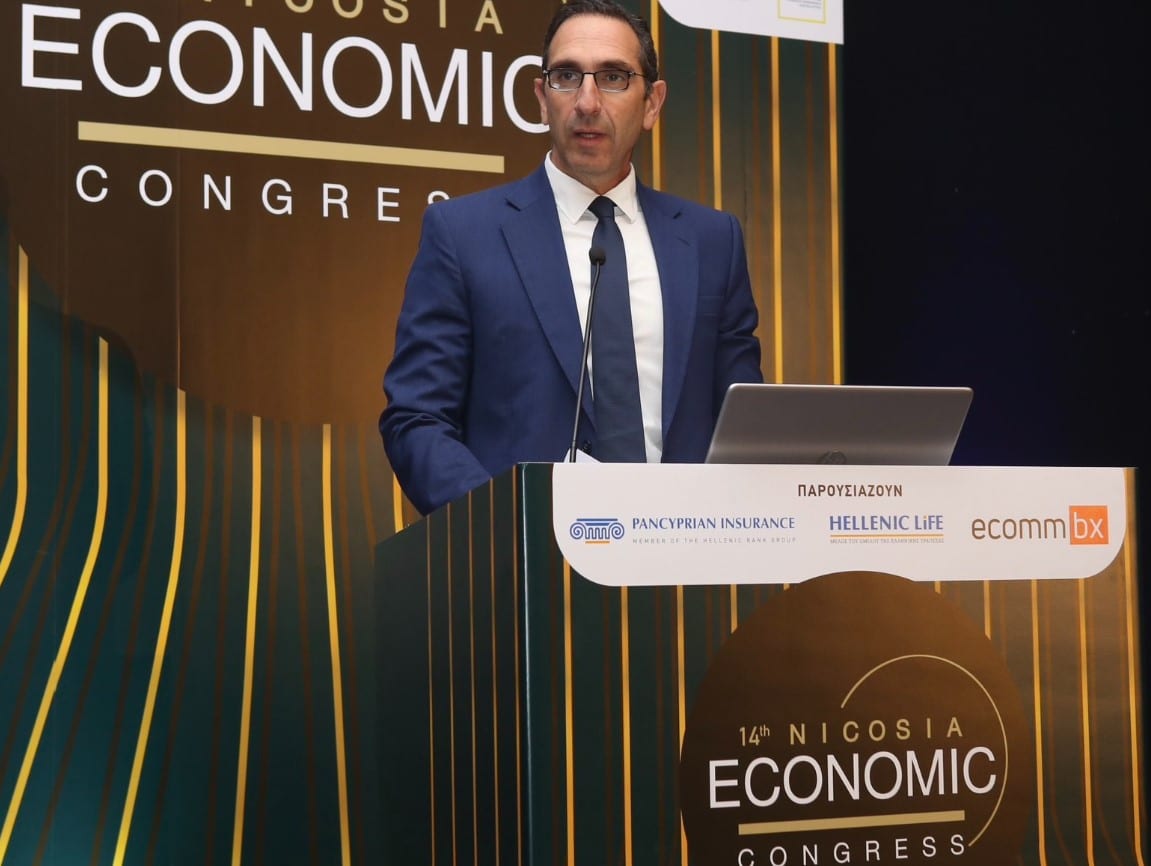Cyprus’ proximity to regions experiencing long-term political crises and military conflicts leaves no room for complacency over handling migration, Interior Minister Constantinos Ioannou said on Tuesday.
In a speech at the 14th Nicosia Economic Congress, the minister underlined the humanitarian aspect of migration.
“Migration is a phenomenon that has existed throughout the centuries and is here to stay. People’s need for a safer and better life, unrest and wars, geopolitical instability, as well as the climate crisis and other socio-economic factors, will always push them to choose migration.”
Ioannou highlighted that the majority of ‘irregular migrants’ that come to Cyprus are victims of smuggling rings, promised access to work and large sums of state funding.
As such, the government moved to make changes, including altering the rules for asylum seekers. Instead of having to wait one month since they submitted their application, this has been increased to nine months “thus limiting their access to financial resources.”
In collaboration with the labour ministry, the government moved to increase inspections to clamp down on illegal employment and also linked the asylum service with that of labour so employers would be able to verify an asylum seeker’s status, Ioannou said.
The government also launched an online information campaign primarily targeting sub-Saharan African countries, to showcase “the real facts” in Cyprus.
Additionally, there was a strong focus on breaking down smuggling rings, creating a special unit in the migration department.
As a result, arrivals dropped by 37 per cent, while asylum applications dropped by almost 50 per cent, Ioannou said.
Asylum seekers from African countries dropped by 85 per cent, he added.
Works have also been carried out to improve the infrastructure at Pournara and limiting migrants’ movements, while efforts are underway at the Kofinou centre for individuals with international protection.
“Construction works have begun for the creation of a pre-departure centre in Menogeia, with the capacity to accommodate approximately 800 people.” Ioannou described it as a “very important step in achieving the goal of strengthening the deportation sector.”
The minister stressed a lot of emphasis has been given to the programme of voluntary returns, with financial incentives ranging from €1,000 to €1,500, depending on the country of origin.
“Having implemented specific measures, Cyprus ranks first in the European Union in terms of the percentage of departures over arrivals and fourth in absolute numbers of returns and expulsions,” he told the conference.
In tandem to the above, Ioannou highlighted integration and social inclusion of immigrants is equally important. To this end “we have proceeded to draw up a comprehensive policy, which includes 50 actions concerning housing, employment, improving skills, education and health.
“The Action Plan for the Integration and Social Inclusion of Migrants 2024-2026 is now under public consultation, which will be completed within the month, so that implementation can begin within the year.”







Click here to change your cookie preferences